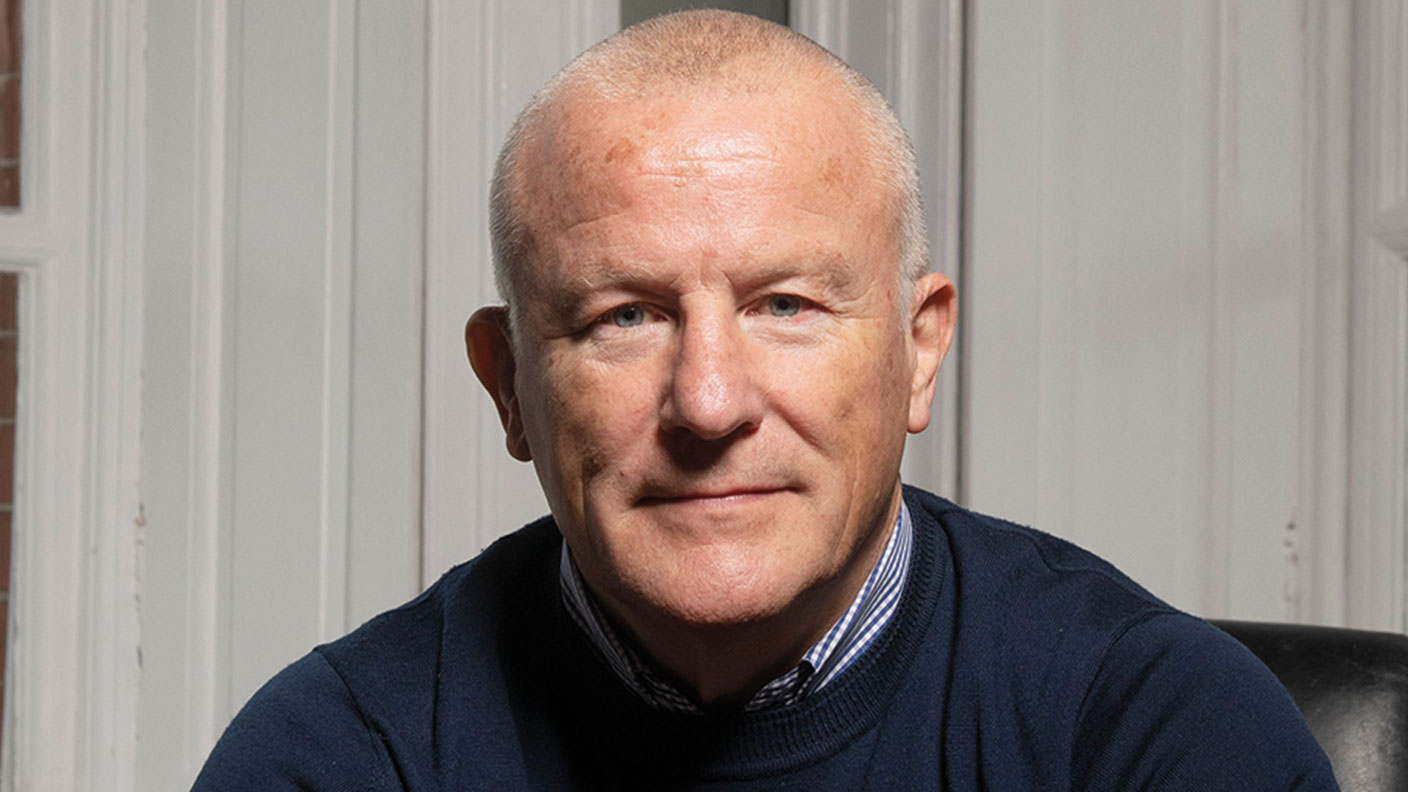Don’t be patient with the Woodford Patient Capital Trust
The Woodford Patient Capital investment trust continues to remain in limbo. Don’t bet on a turnaround anytime soon.

Get the latest financial news, insights and expert analysis from our award-winning MoneyWeek team, to help you understand what really matters when it comes to your finances.
You are now subscribed
Your newsletter sign-up was successful
Want to add more newsletters?

Twice daily
MoneyWeek
Get the latest financial news, insights and expert analysis from our award-winning MoneyWeek team, to help you understand what really matters when it comes to your finances.

Four times a week
Look After My Bills
Sign up to our free money-saving newsletter, filled with the latest news and expert advice to help you find the best tips and deals for managing your bills. Start saving today!

Neil Woodford's woes have continued this week, with the latest grim half-year results from the investment trust he manages, Woodford Patient Capital Trust. For a full update, see below, but there are three key lessons investors should learn from this debacle.
Watch what managers do, not what they say
In the half-year report, Woodford says he still believes the trust "will ultimately reward the patient investor". Yet he sold £1m roughly 60% of his holding of shares in Patient Capital in July. Apparently it was to pay a tax bill, but given that Woodford is not short of a bob or two, it seems odd he couldn't find another way to raise the funds. Anyone with an ounce of scepticism has to question whether he has any real faith in the trust.
The less liquid the asset, the less reliable the valuation
Because investment trusts are listed companies, the share price has no direct link to the value of the underlying portfolio (the net asset value, or NAV). So sometimes the trust will trade at a discount to the NAV, enabling you to pick up £1-worth of assets for, say, 90p. But can you trust the NAV? If the fund runs a portfolio of FTSE 100 stocks, the answer is "yes" you can get an independent, rapidly-updated valuation almost instantly. But if the portfolio is made up of private firms, then the valuation is not only static for months at a time, it is also merely the opinion of a handful of individuals, which can never match the "wisdom of crowds". The fact that Patient Capital's NAV has been revised down from 97p at the start of this year to 65p today just nine months later! shows that the wide discount does not indicate a bargain it indicates a NAV that simply cannot be trusted.
MoneyWeek
Subscribe to MoneyWeek today and get your first six magazine issues absolutely FREE

Sign up to Money Morning
Don't miss the latest investment and personal finances news, market analysis, plus money-saving tips with our free twice-daily newsletter
Don't miss the latest investment and personal finances news, market analysis, plus money-saving tips with our free twice-daily newsletter
Turnarounds don't start until the "kitchen sink" moment
If Patient Capital is to have any hope of rehabilitation, then Woodford needs to go, and a new manager needs to come in and ruthlessly assess the portfolio. That would be very painful, but it would give the market a sense of confidence in whatever value is deemed to remain in the trust. The fact that Woodford is still in place as manager points to two scenarios, neither of which is reassuring for investors. The board may still be overly influenced by Woodford it's hard to fire a manager at the best of times, let alone when his name is on the trust. But even more worryingly, the board may simply be struggling to find another manager to take the trust on. Given the mess they'd inherit, that's perhaps no surprise.
In short, we wouldn't go near it and probably won't re-evaluate that view until Woodford is gone (assuming that ever happens). Avoid if you don't own sell if you do.
Why Woodford Patient Capital might struggle to take a long-term view
In June, Neil Woodford had to suspend his Woodford Equity Income fund. The open-ended fund held too many illiquid assets that he was unable to sell rapidly enough to fund a flood of people asking for their money back. The fund remains closed to withdrawals.
Technically, as an investment trust, Woodford Patient Capital doesn't have this problem to get out, you just sell your shares on the stockmarket. But liquidity is still proving a headache in other ways.
Firstly, the fact that the income fund and the trust share a lot of overlapping holdings ones that the income fund is under pressure to sell means the valuation of each of these companies (most of which are hard to value at the best of times) is under real pressure. This has been one driver of the huge write down in the trust's net asset value (NAV) since the start of the year (see above).
Another problem is that the trust has employed "gearing" ie, it has invested using borrowed money. This borrowing facility is limited to 20% of NAV. The trouble is, that means that if the NAV falls, the gearing must be cut. That in turn puts pressure on the trust to sell off assets exactly the scenario that an investment trust is designed to avoid. So much for long-term capital.
The trust is trying to tackle this in two ways. Firstly, it is likely to propose changing its investment policy to allow unlisted companies to exceed 80% of the portfolio's value (Alan Brierley of Investec tells The Times that, save for the listing of a big holding on the obscure Nex exchange, the trust's illiquid holdings already run at 90%). This will mean the more liquid shares can be sold to pay down borrowing.
Secondly, the trust needs to renew its borrowing facility by 16 January next year. As Matthew Vincent points out in the Financial Times's Lombard column, this short-term deadline, rather than long-term investing, is now the board's main priority.
Get the latest financial news, insights and expert analysis from our award-winning MoneyWeek team, to help you understand what really matters when it comes to your finances.

-
 Should you buy an active ETF?
Should you buy an active ETF?ETFs are often mischaracterised as passive products, but they can be a convenient way to add active management to your portfolio
-
 Power up your pension before 5 April – easy ways to save before the tax year end
Power up your pension before 5 April – easy ways to save before the tax year endWith the end of the tax year looming, pension savers currently have a window to review and maximise what’s going into their retirement funds – we look at how
-
 Neil Woodford’s back – but has he really learned anything?
Neil Woodford’s back – but has he really learned anything?Opinion Disgraced fund manager Neil Woodford is planning a comeback. But he doesn’t seem to have learned much from his many mistakes. So why would anyone invest with him now?
-
 Neil Woodford’s back – but sometimes sorry isn’t enough
Neil Woodford’s back – but sometimes sorry isn’t enoughAdvice Neil Woodford’s funds blew up in 2019. Now he is on the comeback trail. But his apologies are unconvincing.
-
 Woodford investor? Your first payment is coming soon
Woodford investor? Your first payment is coming soonNews Private investors left stranded by the collapse of the Woodford Equity Income fund will soon be getting at least some of their money back. But they will have to wait a while longer to see how much more – if any – they will receive.
-
 Neil Woodford continues to cast a shadow over his successor at Invesco
Neil Woodford continues to cast a shadow over his successor at InvescoFeatures Mark Barnett, former star manager Neil Woodford’s successor at Invesco, has applied the same formula, and is struggling.
-
 Is it time to buy Patient Capital Trust?
Is it time to buy Patient Capital Trust?Features Neil Woodford’s Patient Capital Trust has been taken over by asset manager Schroders. The share price has surged - but should you buy in? John Stepek looks at the trust’s prospects.
-
 Neil Woodford: no silver lining for his investors
Neil Woodford: no silver lining for his investorsEditor's letter Neil Woodford made every mistake it is possible to make as a money manager. And his investors have been stiffed. But however wrong it all went, Woodford never stopped taking the fees.
-
 Woodford believed his own hype – now his investors are paying the price
Woodford believed his own hype – now his investors are paying the priceFeatures Neil Woodford was once one of the brightest stars in Britain’s investment firmament. Then he came crashing down to earth. John Stepek explains what went wrong.
-
 Woodford’s empire collapses – what happens to his investors now?
Woodford’s empire collapses – what happens to his investors now?Features With Neil Woodford getting his marching orders and his funds being shut down, John Stepek explains what it means for his former empire, and for those with money locked in.